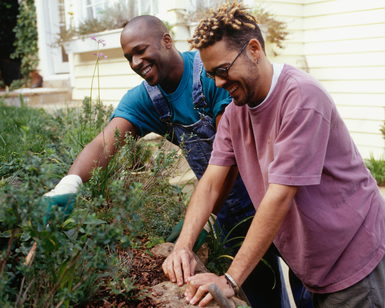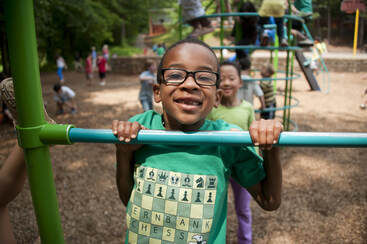 For most of us, the past four months have been laced with frustration, stress and maybe even panic. These emotions are reasonable and justified; our daily routines have been upended, and it does not seem like the world will be returning to normal anytime soon. But this COVID-19 world won’t last forever, either. With the mindset that this state is temporary, it is important to try to think about what quarantine gives to us. We suddenly have the unique opportunity to develop habits and attitudes that can ultimately make our post-pandemic lives better. Typically, we live in a stimulation-heavy world and often find ourselves searching for somewhere better to be. Many establishments, however, are still closed or not safe yet, so going somewhere else in search of summer fun is not an option. Learning to be more present with friends, family or just yourself is an invaluable tool that leads to greater satisfaction and happiness in the long run. One way to do this is to look to your own yard for entertainment. Maybe learn how to plant a garden by yourself or with your kids. Nature will always be around us despite whatever stressors are thrown our way, and engaging with the outdoors can be grounding and calming. Another way is to get creative in the kitchen. Cooking can be a uniting activity, and everyone in the household can get involved or just appreciate the end product. Now is the time to pick up projects and activities we normally wouldn’t think of doing or have time to do in our normal past routines. Take advantage of this change-up, and discover the gift that is finding joy where you are.
1 Comment
This year, many of us are mourning the loss of our summer vacations, as they are cancelled out of caution, due to state closures or because of travel bans. In doing so, we are finding out just how valuable those trips were to us. They introduced us to new places and people while allowing us time to recharge.
Our lack of vacationing may seem unique to 2020, but for many - particularly for youth in foster care - going on vacation is the actual rarity. Few, if any, youth in foster care get to experience a vacation in their childhood. Their foster families either don’t take trips or send the youth to respite homes for the duration of their travel. Those in group homes can expect to see the weekend or backup house parents in place of their primary guardians. Once youth age out of care, vacations may be equally as rare. Only an estimated 3% of foster care youth earn college degrees. Without a bachelor’s degree, employment options are limited and wages even more so. Vacations and even staycations become an unattainable luxury. The RJ Leonard Foundation aims to change that, by helping youth transitioning out of care earn their degrees and start toward a career of success, and by making the needed luxury of vacations a reality when possible. RJLF helped its Fellows take trips to Thailand, California and across the country in 2018 after its Dare to Dream initiative highlighted Enriching Experiences. We look forward to doing so again once travel is safe. Click here to find out more about Dare to Dream, RJLF and how you can help.  Thanks, in part, to the romanticized versions of summer camp found in TV and movies, many view it as a luxury - a fun experience that parents enroll their children in to help facilitate a magical childhood and soon-to-be nostalgic memories. But the truth of the matter is summer camp - whether sleep-away or day - is a necessity for most parents. Very few jobs have the summers off and even fewer professionals can afford to take them off if they do. (An estimated 1 in 6 teachers have second jobs year round.) Summer camp/care is a much needed childcare service, keeping children of all ages not just entertained but safe from June through August. This year it feels particularly necessary. Children have been home since March with limited, if any, access to their friends. Parents - unless deemed essential - have been home, as well, trying to work, and educate/care for their children at the same time. Camp is a haven for both - time out of the house for the kids and time to work for the parents. However, it also seems risky. After months closed off to the world, is it safe to send children to camp even if it’s outdoors? Will temperature checks, hand washing, smaller cohorts and masks on staff be enough to keep kids healthy? And is it affordable? Many have lost their jobs or seen reduced hours and pay since the pandemic started. Summer camps range from $100 to $500+ a week. That means a few thousand dollars per summer, per child (more than the stimulus checks sent out in April). This decision, particularly this year, will weigh heavily on parents, including many of our Fellows. How do you choose when the wellbeing of the child, the parent, the family and the community don’t necessarily align? |
Categories
All
Archives
July 2024
|
|
1097 Street Road
New Hope, PA 18938 |


 RSS Feed
RSS Feed
